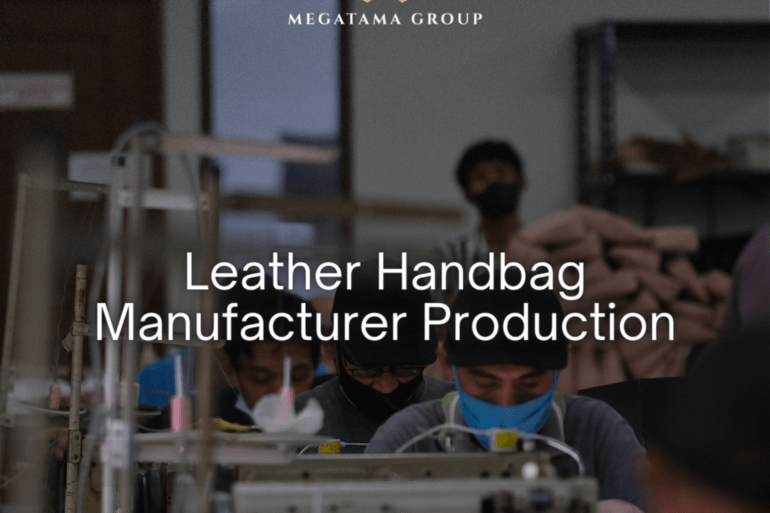
Which Manufacture Should I choose?
If you want to make a business in the fashion feild, there are many things that you must prepare, both before, during and after running the business. For businesses in the fashion sector, there are several crucial things that you need to consider to find good and right results. When you want to make a product that you sell, of course you have to do the manufacture and production of the product. In this case you need a manufacturer. Starting a business in the fashion world of both clothing and accessories involves some seemingly basic tasks. You have to:
- Find out what product you want to make and who the market is for.
- Research whether the product you are going to sell will sell or not and how much you should sell your product for.
- Create patterns, sew by sample, or tech pack.
- Decide what kind of labor you’ll need to create your product.
- Research again! This time for the manfacture that can meet your workforce checklist.
- Call your top choice of manufacturers.
- Negotiate terms with your favourites.
- Work with your new manufacturing partner to create product samples.
- Offer feedback on your samples.
- Request a final production order from your manufacturer.
It doesn’t stop there, these tasks above can each take days to months to complete, especially the research component. Hundreds of manufacturers operate in Indonesia and overseas, and each has a minimum order quantity, specialization, and expected sampling and production times.
How to Find Manufacturing Partners for Your Products
When looking for the right manufacturing partner, especially for producing bags, there are several factors we recommend that you consider:
- Does this manufacturer have a good reputation? The bad news is that some manufacturers will produce additional copies of your product to sell to their other customers at a lower cost. You should avoid manufacturers who harm your intellectual property and of course, your profits.
- Do these manufacturers reply to your calls and emails on time, or do they keep you waiting? Partnering with manufacture, of course there will be times when you want an update and you want to be clear and honest about the progress of your line during sampling and production.
- Does your manufacturer have a minimum order quantity to suit your needs, or will you run out of stock?
- Is your manufacturer aligned with your brand values whether it is fashion sustainability, ethical workplace conditions or high quality fabrics?
- Most importantly: Does your manufacturer specialize in the product you want to make?
If you’re building a private label clothing collection with multiple product categories, this last question can be tricky. Are you looking for different manufacturers with expertise in each type of product or do you stick with one manufacturer with a more limited portfolio? Those are the questions we will explore next:
Using One Factory That Will Produce Your Brand Products
Sticking to one manufacturer or craftsman for your entire clothing line offers several advantages, namely:
You only have one relationship to manage and can minimize your point of contact. This reduces confusion and errors that come from multiple projects spread across multiple vendors.
One manufacturer and one relationship means one invoice. You’ll build a strong relationship with one of your apparel manufacturers, without having to worry about how other factories work.
However, there is also a risk that:
Your solo manufacturer may change your costs suddenly and without much explanation. If they manufacture your entire line, they may have your mercy when you do your entire manufacturing research operation again. While the manufacturer may have significant experience manufacturing your product, adding a product they are not familiar with can result in work that differs in quality and results. So manufacturers need to hire new workers or buy new machines to meet your product demands, at the expense of you.
Collaborate with Manufacturer List
Working with several different manufacturers also has its own list of pros and cons. Let’s start with what makes it great:
Having multiple manufacturers means that you can ensure each factory is equipped with the equipment, labor and expertise to assemble your product, without adding any additional costs.
You will gain experience learning how different manufacturers work. Ultimately, this will help you decide which manufacturing partners you like and which you don’t. In addition, finding multiple manufacturing partners requires more research. You’ll have more relationships to manage, which means more invoices to handle and potentially more time spent building relationships with your touchpoints and figuring out how they run their factories.
Which Fashion Supplier Relationship Should You Choose?
Ultimately, the decision whether to work with multiple manufacturers or one manufacturer depends entirely on your preferences. What you should avoid are:
- Choose a manufacturer that adheres to rigid ethical operating standards, and has a reputation for quality and work to back it up.
and the availability of tools and expertise to make your product the best it can be. - Accepting bids based on a design project (or product), also means you will receive the best offer for each piece from your private label.
- Have a system manage all sampling, production, feedback, shipping, customs fees and etc.
At Megatama Group we provide one stop manufacturing service that produces fashion products with a wide range wider from exotic leather, cowhide, synthetic leather, canvas and many more. We provide end-to-end services from design, production, packaging, brand consulting and distribution center to meet our customer’s goals.
